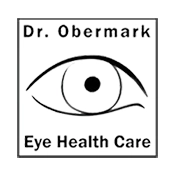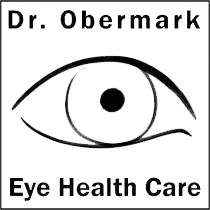Cataract Options

Struggling with blurry, cloudy vision that makes everyday tasks harder and moments with loved ones less vibrant? Cataracts are one of the most common vision conditions affecting adults in Poplar Bluff MO and Sikeston MO, but thankfully, help is within reach. At all Dr. Obermark Eye Health Care's locations, our teams of eye care professionals provide modern, effective cataract treatment options to help you regain clarity, confidence, and quality of life—no matter which of our convenient locations you visit.
Whether you’re reading a favorite book, driving at night, or simply enjoying a walk outdoors, clear vision plays a vital role. Let us help you restore it.
What Are Cataracts?
Cataracts occur when the natural lens of the eye becomes clouded, making it difficult for light to pass through properly. This causes vision to become dull, blurry, or distorted. Most often a result of aging, cataracts can also develop due to factors such as:
- Prolonged UV exposure
- Diabetes
- Smoking
- Eye injuries
- Certain medications
Cataracts generally develop slowly, often in both eyes, though one may be worse than the other. Symptoms may include:
- Blurry or hazy vision
- Difficulty seeing at night
- Light sensitivity or glare
- Faded or yellowed colors
- Halos around lights
- Double vision in one eye
- Frequent prescription changes
These changes can disrupt daily activities and impact your independence—but the good news is, they are highly treatable.
Recognizing the Signs of Cataracts
Noticing subtle vision changes? It might be time to have your eyes evaluated. Common cataract symptoms include:
- Cloudy or Blurry Vision: Like looking through a foggy window.
- Trouble With Night Vision: Difficulty driving or seeing in low-light settings.
- Sensitivity to Light: Bright lights may cause discomfort or glare.
- Halos Around Lights: Especially at night or when driving.
- Color Distortion: Colors may appear muted or less vibrant.
- Frequent Lens Prescription Changes: If your vision keeps shifting, it could be cataract-related.
- Double Vision in One Eye: A sign of advanced cataracts impacting the lens.
Early diagnosis means more options and better outcomes, so don’t ignore the signs.
Comprehensive Cataract Diagnosis
Our approach to diagnosing cataracts is thorough and consistent across all locations. When you visit any of our convenient locations, your eye care evaluation may include:
Patient History & Symptom Review
We begin by discussing your vision concerns, medical background, and lifestyle needs.Visual Acuity Testing
You’ll read an eye chart to help determine the sharpness and clarity of your vision at various distances.Slit-Lamp Examination
A high-powered light and microscope help us examine the front of your eye to detect lens clouding and other signs.Dilated Eye Exam
Eye drops temporarily enlarge your pupils so we can inspect the retina and optic nerve for cataracts and related issues.Tonometry (Eye Pressure Test)
Measuring intraocular pressure helps rule out other conditions such as glaucoma.Refraction Assessment
Identifying changes in your eyeglass or contact lens prescription helps us monitor cataract progression.Contrast Sensitivity & Glare Tests
These tests reveal how cataracts may be impacting your ability to see in bright or dim conditions.
Through these diagnostics, our specialists develop a tailored treatment plan to suit your visual needs.
Cataract Treatment Options
We offer a full spectrum of cataract treatment options—from early-stage care to advanced surgical solutions—delivered with consistency and compassion across all our practice locations.
Conservative Management (Early Stages)
For mild cataracts, we may recommend:
- Brighter Lighting: Improved illumination at home or work.
- Anti-Glare Coatings: Lenses that reduce discomfort in bright environments.
- Magnifying Tools: For reading or detailed tasks.
- Updated Prescriptions: Small changes can temporarily sharpen your vision.
Cataract Surgery (Advanced Treatment)
When cataracts significantly affect daily life, surgery is typically the best solution. The procedure is safe, efficient, and highly effective. Eye surgeons perform:
- Phacoemulsification: A minimally invasive technique using ultrasound to break up the cloudy lens.
- Intraocular Lens (IOL) Placement: Once removed, the lens is replaced with a clear artificial lens customized to your vision needs—options include monofocal, multifocal, and toric IOLs.
Laser-Assisted Cataract Surgery
This advanced method uses femtosecond laser technology to improve precision and outcomes, particularly for patients with astigmatism or complex lens prescriptions.
Post-Procedure Care & Support
After surgery, most patients experience significant improvement in vision within just a few days. Our team provides detailed aftercare instructions, including:
- Eye Drop Therapy: To prevent infection and inflammation.
- Protective Eyewear: To shield your eyes while healing.
- Follow-Up Appointments: Scheduled across all our offices for your convenience.
We’re committed to helping you recover safely and comfortably, no matter which location you visit.
Why Patients Choose Dr. Obermark Eye Health Care
With multiple offices serving Poplar Bluff MO and Sikeston MO and surrounding communities, we make expert eye care accessible and consistent wherever you are. Our commitment to advanced technology, compassionate service, and personalized treatment plans has made us a trusted name in vision care.
If you’re noticing changes in your vision, don’t wait. Cataracts are treatable, and the path to clearer vision starts with a visit to one of our convenient locations.



